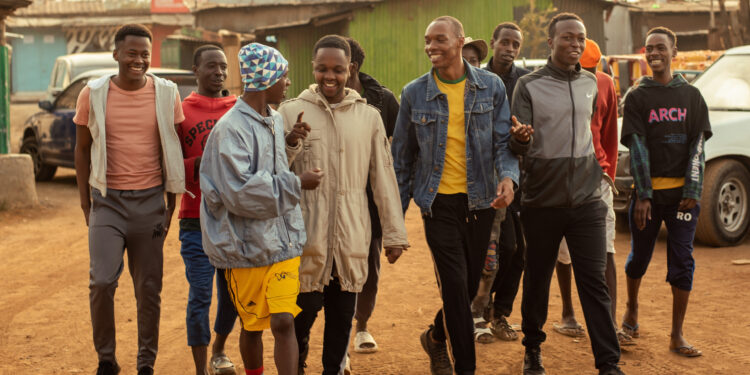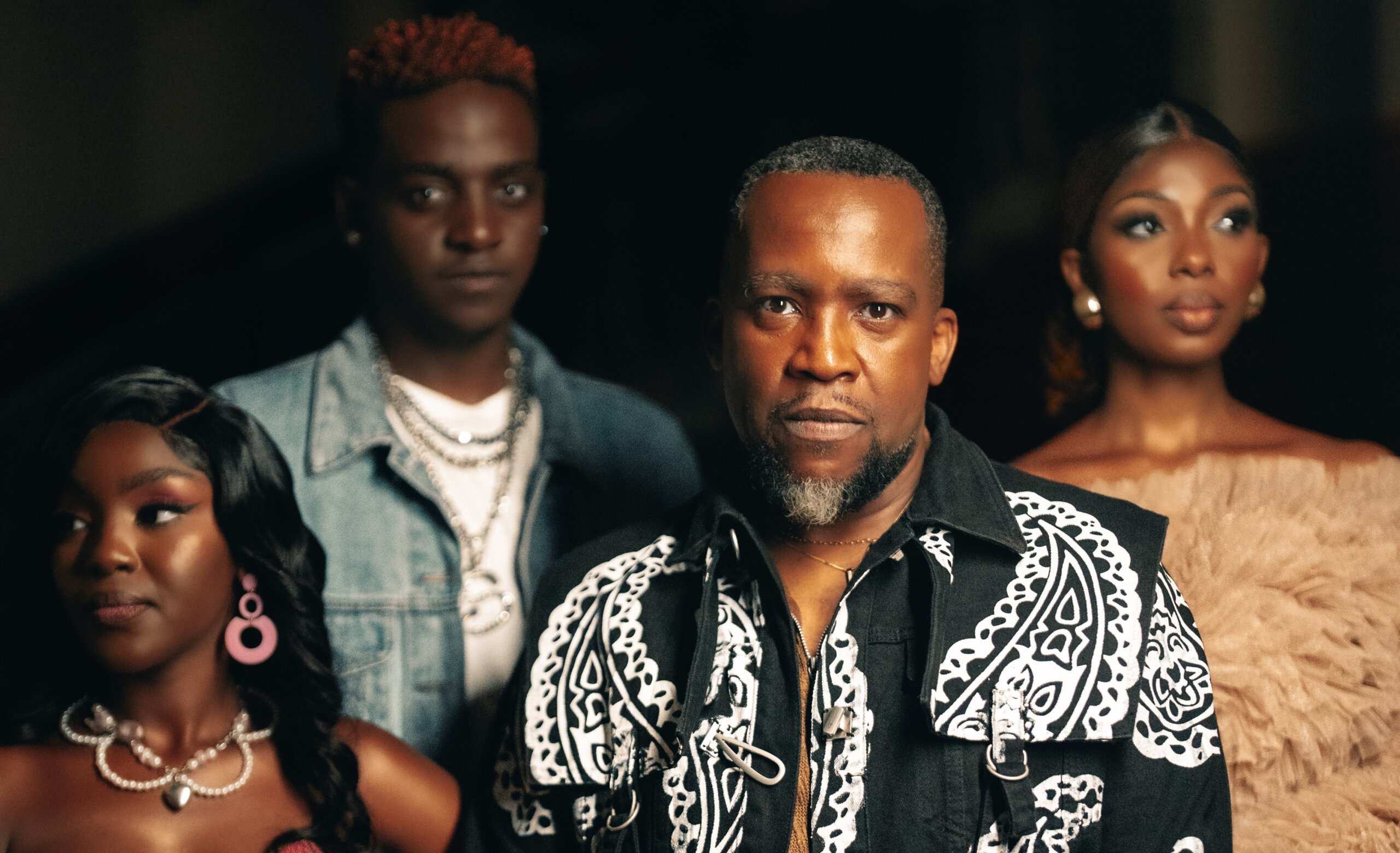I grew up watching Machachari, a jarring yet earnest 25-minute comedy that used to air every Wednesday on Citizen TV without fail. Whereas the other comedies with a similar time stamp during the week starred a diverse cast of established adult actors, Machachari was entirely created for and by children. Most of the stories were about the dramas kids go through daily, with what felt like improvised dialogue within the realistic mabati corridors of Kibera slums. My mom, to this day, has never been convinced it was shot in Kibera, but for us, it didn’t really matter. Machachari was, in every sense of the word, the most thrilling and accurate drama we could bear witness to. We eventually grew up and scattered to boarding school life, and the actors grew alongside us. With most of their core audience lost to the uncompromising stream of time, Machachari continued until it couldn’t anymore, losing key actors and trying to bring others to the fold. I wasn’t there to witness the end, but I can assume it simmered down to a shell of its former self, but with the proud achievement of having raised a generation glued to their screens. Pepeta, in my humble opinion, feels almost like the continuation of where Machachari left off, albeit with the zeal and fervour of its earlier years.
Released in November 2022 as a Showmax Original, Pepeta assembles a cast of familiar and new faces to tell a story based on the real-life story of Harun “Rio” Wathari, a veteran football star from Kibera. The cast includes Brahim Ouma (Famous) in his first-ever lead role, Malik Lemuel who makes a major comeback since Machachari, Dedan J. Onyango (The Real House Helps of Kawangware), Lwanda Jawar (Sense8), Avril Nyambura (MTV Shuga), George Mo (Borderline), Wycliffe Eravuna (Selina), Marrianne Nungo (Supa Modo), Brian Ngaira (Baba Twins), and newcomers Eric Aswani, Fridah Mumbe, and Suzanne Karani. All the episodes are directed by Vincent Mbaya (Country Queen, Chaguo), with Damaris Irungu (Crime and Justice), Charles Ouda (Waiting Room, Makutano Junction), and Abigail Arunga (How to Find a Husband) penning all eight episodes.
From a title that is a homonym for both dribbling a ball and shooting a gun, Pepeta embraces what it is from the start – a drama intending to probe into the duality of the lives of children born and raised in the hardships of Kibera. The first episode throws us right into the precarious situation our leads have found themselves in over the course of the series, then quickly gives us a brief glimpse into their earlier lives, already shaping up into the people we will come to know, before bringing us into the beginning of this story. By the end of the first episode, I had already grown cautiously optimistic about this show in a way I hadn’t for any other Kenyan show. All because it was as true to its roots as it could be.
Pepeta, like Machachari before it, follows the same formula of telling good stories with seemingly real characters, using almost precise language and dialect, and allowing the actors to find their own voice within it, albeit for a more mature audience. From the claustrophobic rooms and muddled passages to the earnest banter and lazy atmosphere, there is every sense that this show, though exaggerated for dramatic effect, was heavily invested in telling the truest version of events on the ground in a way most Kenyan shows are scared to do. We always pit our best actors against foreign archetypes in our own stories, and time and time again, there has always been a dissonance. Not with Pepeta. I love seeing dusty football pitches and high schoolers going out of their way to disrupt their uniform. I love the filler dialogue about kissing a girl with miraa in her mouth, and parents inviting guests into your room. And Pancho (Marcus Ochieng). Pancho was perfectly played. Maybe it’s because I have grown up in an environment like this, but damn, did they nail the feel of it all. There is a feeling this was made entirely for a Kenyan audience, and I hope more Kenyan people see it and grow with it, just like we grew with Machachari through the years. I also hope they make better subtitles so the foreign audience is not completely shut out.
On the technical side, there is also very little to complain about. The director created all the right atmospheres, from a villain’s lair with a horned skull transposed in the middle to long takes blending escalating dialogue together; every scene perfectly meshes around each other. One of my favourite bits is at the beginning of episode 3, with a drowning inside dirty sewage water juxtaposed with a baptism inside clean river water. Moments like those, as trivial as they may be, give off the impression of intentional filmmaking that elevates a story beyond just the dialogue. There were instances where the dialogue fell short, and the character motivations felt uncharacteristic, but for the most part, everything works in tandem, scene to scene, episode to episode, to escalate without much unnecessary filler or drag in between. That’s all I can really ask for from such a show.
Pepeta’s only flaw is that they appear to have severed their legs to win our hearts. And it wouldn’t even be much of a gripe if this was meant to be a miniseries instead of an ongoing one. There are dramas like Crime and Justice that build episodic tension and release it by the end of the episode with slow progression into the stories of the main characters throughout the seasons, and there are dramas like Pepeta that escalate episode by episode to a dramatic finale, which they do perfectly. My only worry is that they go about it in a way that doesn’t leave much to continue in the future unless they rebuild almost all the aspects. They have spent so much time building and tearing down within the eight episodes. Also, starting at the end is a trope that has been used countless times to create that sense of anticipation that, in all honesty, works, but Pepeta doesn’t repay the the patience it asks of its viewers. You can’t simply use the same cliffhanger to start and end the series; where is the sense of finality?
Both of those complaints speak to the grander sense of the series, because I really hope this series has the legs to grow and become bigger than its initial premise. There are a lot of great stories and characters that have yet to be fully realised and even more to be introduced. By the end of the eighth episode, Pepeta might have earned its place as my favourite Kenyan drama yet. I enjoyed almost all of it in a way I haven’t for a Kenyan production, and I look forward to whatever the makers have in store for its future.
Pepeta is available to stream on Showmax.
Update: Following up on my last two paragraphs, it would seem that Pepeta is a miniseries after all. There goes our season 2.
Enjoyed this article?
To receive the latest updates from Sinema Focus directly to your inbox, subscribe now.











